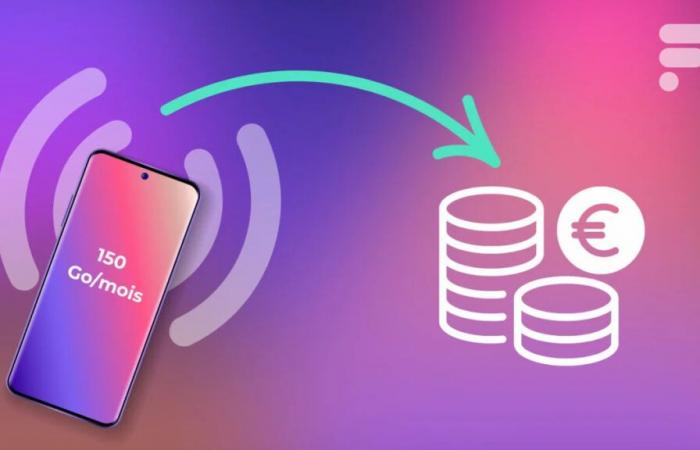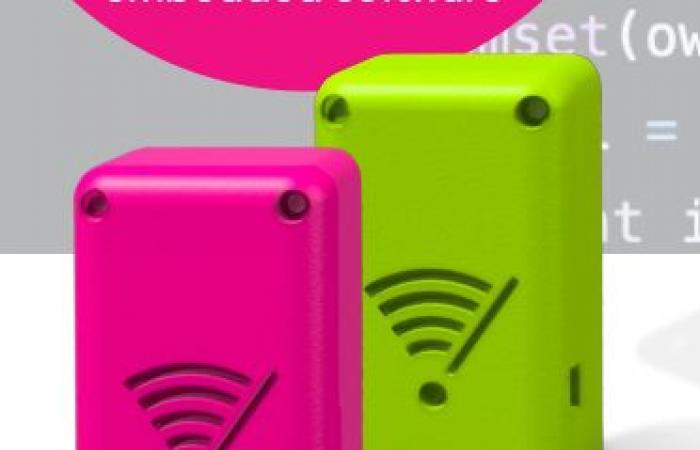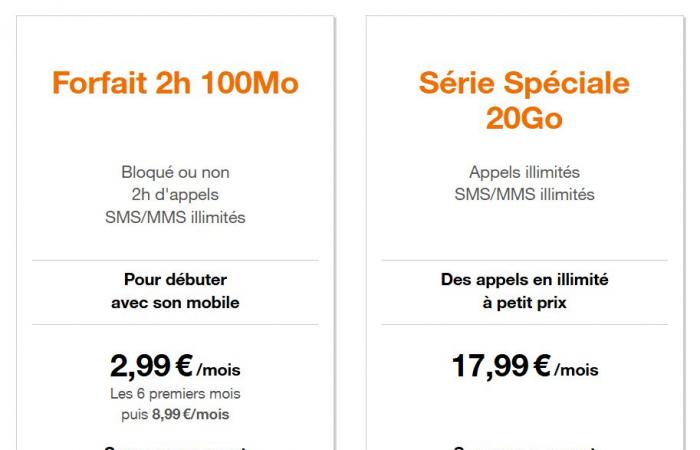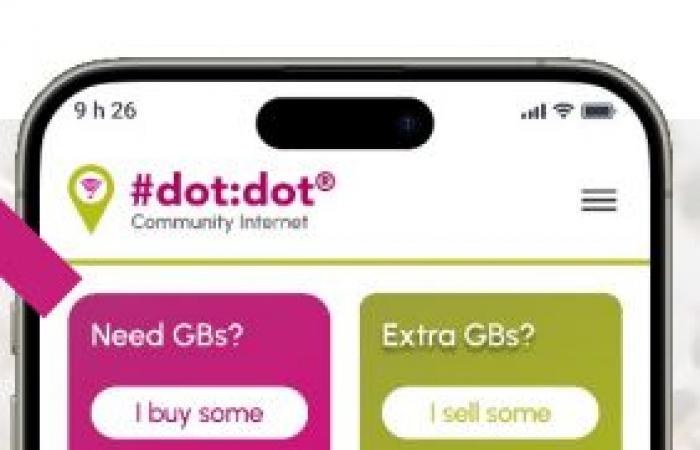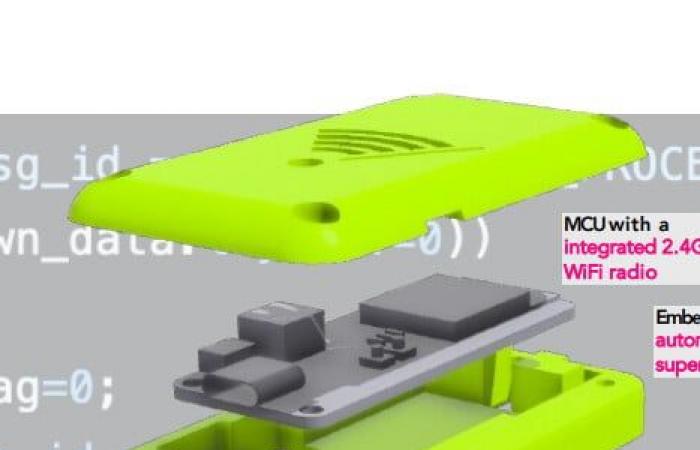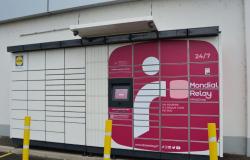The French company #dotdot wants to shake up the connection sharing of your smartphone by giving you the opportunity to sell the excess gigabytes of your mobile plan via a secure connection.
50, 80, 100, 150, 300 GB per month! 4G and 5G mobile plans are increasingly available, particularly in France. This escalation of data can certainly represent a very nice commercial argument, but in reality, a huge part of this envelope is never used, unless you use your smartphone as an Internet box at home… and even then, there is undoubtedly still room for improvement.
Based on this premise, the French startup #dotdot saw an interesting opportunity: offering the “ world's first on-demand mobile internet offering “. And you can potentially make some money with this tip. We spoke with #dotdot co-founder Christophe Bureau to find out more.
Earn money from excess data
#dotdot separates its users into two categories: “ endowers » and the “ endowed “. Let's start with the endowers. On the #dotdot application available on Android and iOS, they can indicate the amount of gigabytes they want to make available before activating connection sharing.
Please note that this sharing is not done just anyhow. THE endowers must have a box sold by the startup. This accessory serves as a Wi-Fi repeater with a range of 100 meters and the promise of an anonymous connection that is more secure than traditional connection sharing.
So, no need to share your Wi-Fi hotspot password and #dotdot indicates that the connection is “ protected by a patent currently in the international phase (PCT) ».
What interest for the endower ? The latter can act out of pure altruism – and we will come back to scenarios designed for associative circles – but he can also earn a little money. Indeed, on #dotdot, you can sell 1 euro per shared gigabyte (with 20% commission for the platform). Christophe Bureau thus speaks of a “ marketplace » mobile data. Let us point out that the repeater box is sold for 40 euros, so it takes some time to amortize the investment, but the co-founder assures that it can happen quite quickly: 40 days if you manage to sell a gigabyte per day.
On the side of endowedthis is the opportunity to have a Wi-Fi connection that is safer than public networks, for free or for a reasonable price without having to spend more than necessary and without a subscription.
Some may remember the Fonera which offered a similar concept a little less than 20 years ago.
Mobile plans: not enough or too much
« Today, subscription is the rule », explains Christophe Bureau, pointing out the incompatibility between this state of affairs and the needs of consumers. Indeed, according to Arcep, “ a customer active on 4G networks used an average of 16 GB per month of data during the second quarter of 2024 ».
Thus, people who do not exceed this average often find themselves having to choose with a plan that is very limited to a few hundred megabytes per month or overly provided with a plethora of data.
This is demonstrated by the two most accessible no-commitment plans at Orange. The first has 100 MB of data, the second 20 GB, with no intermediate formula between the two. This is where #dotdot thinks it can be relevant.
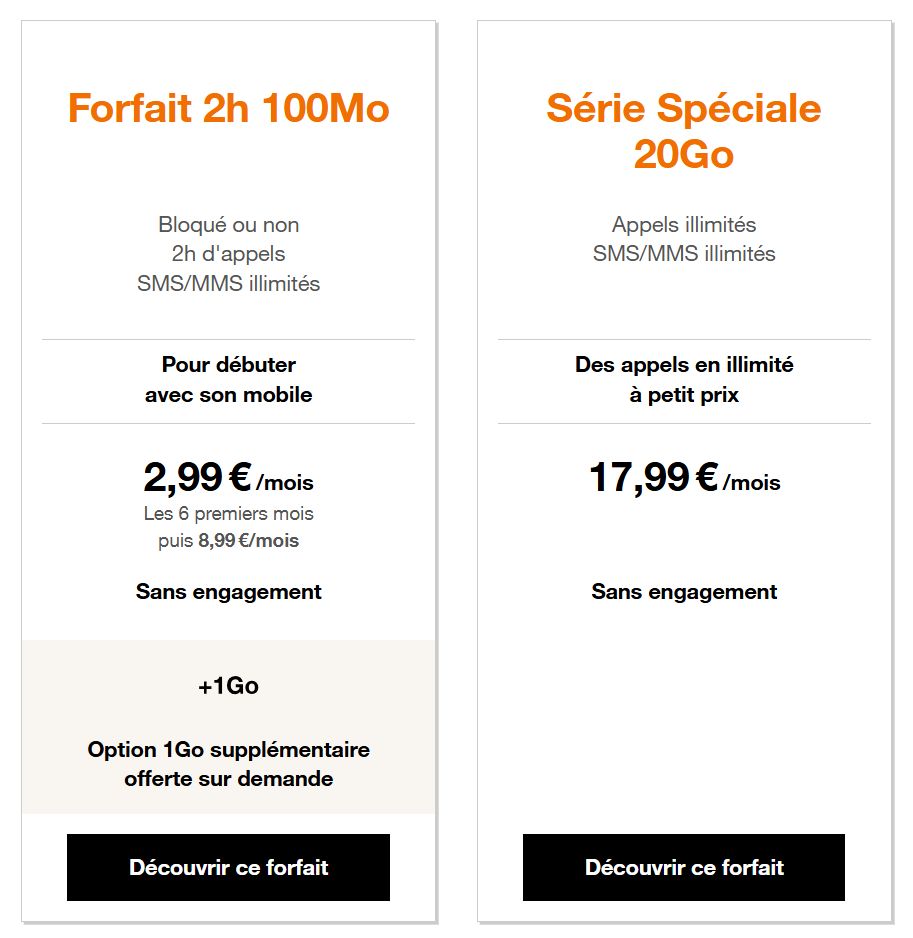
On the technical side, also note that the #dotdot box uses the 2.4 GHz band and will also use “ Soon » that of 5 GHz. Also count on an average speed of 15 Mb/s. To give you an idea of the uses that a connection via the #dotdot network can cover, Christophe Bureau takes the example of a film on Netflix which requires more or less 1 GB in 7 Mb/s. We therefore do not exceed 2 euros on the French startup's platform for a feature film in SVoD.
What uses and what chances of success?
In principle, the concept of #dotdot is bound to appeal. Obviously, to be sustainable, the project must be able to count on a significant number of users. As the initiative is still very young, the startup does not yet have numbers to claim in this area. However, we can inevitably wonder if it will be successful: will enough people see a financial interest in it?
For good reason, the gigabyte does not cost very much in France and the #dotdot offer might not seem attractive enough. On the other hand, in countries like the United States “owhere the giga costs on average 6 dollars » according to Christophe Bureau, this type of on-demand formula can meet with some success.
In addition, #dotdot also intends to address professional uses. For example, in factories requiring good network coverage at an attractive price for technicians operating underground, without having to pull fiber or install an antenna.
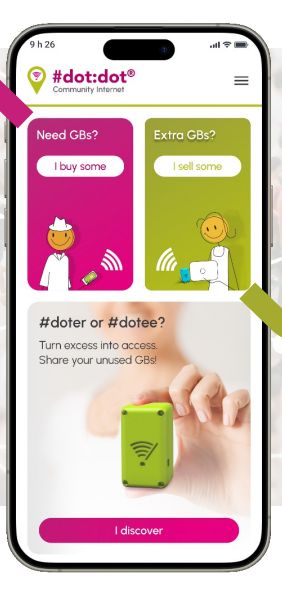
It is also a question of participating in the fight against the digital divide. Many associations try to help categories of the population who do not necessarily have access to the Internet or mastery of online tools. With this in mind, helping a person complete their administrative procedures on the Internet requires approximately 500 MB according to Christophe Bureau.
We can therefore imagine scenarios where an association invests 40 euros in the box one time so that volunteers can then share their excess mobile data free of charge. Depending on the situation, there would therefore be no need for an Internet box or an expensive mobile plan to provide the entire premises with a good network and cover all needs.
Christophe Bureau also believes that university campuses represent promising potential for #dotdot since they are densely populated areas with a public that will tend to control its costs.
Almost 100% French manufacturing
Finally, #dotdot highlights an almost entirely French design. The box which serves as a Wi-Fi hotspot is made from recycled plastic in the Renault factory in Flins, in Yvelines, as part of the incubator specializing in the circular economy. The electronic card inside comes from Lille.
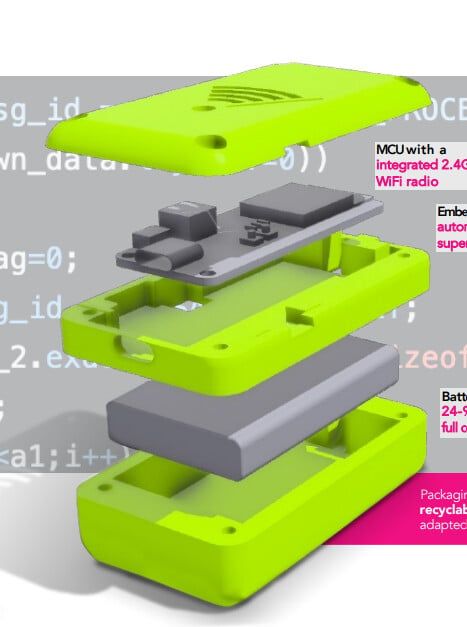
The area of improvement in this area will rather concern the battery which comes from China – and we must admit that in 2024 it will be difficult to do otherwise as the Asian giant controls the entire value chain.
The startup #dotdot will try to attract as much light as possible during CES 2025 where it already prides itself on being one of the innovation winners of the largest tech show in the world in the “Smart Cities” category. It is in the process that the platform will launch itself in due form to try to find its audience.
Unlimited calls
130 Go en France
35 Go to Europe
Unlimited calls
40 Go – 60 Go en France
15 Go to Europe
From
4.99€/month
Unlimited calls
300 Go en France
27 Go to Europe
All mobile plans

